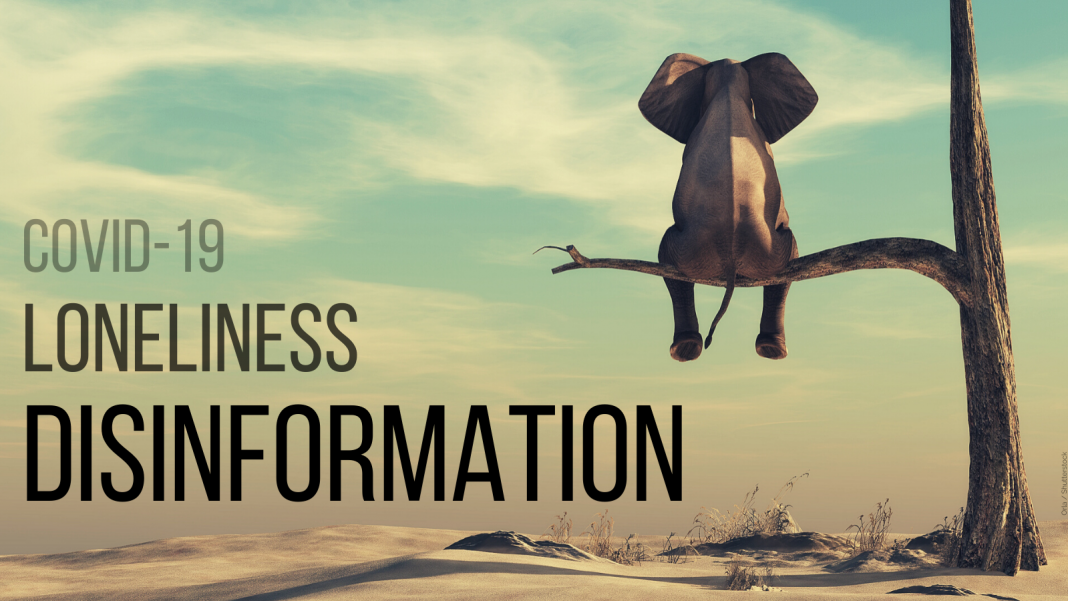The Loneliness Factor
These days, most people intuitively grasp that loneliness creates mental health challenges. As COVID-19 forced societies into lockdowns, many realized we humans are mammals too. Alone, we suffer.
A study by Princeton University shows that people are also more likely to believe disinformation when they feel excluded. Furthermore, loneliness is why experts think older people are more prone to share disinformation, next to cognitive deficits (we have to call a spade a spade) and the fact that they are relative newcomers to social media.
Hannah Arendt, one of the greatest brains of the 20th-century, first suggested how loneliness fuels political extremism. Personally, she had received her share of both.
In 1933, as a young Jew, she had to flee Germany. After World War II, she wrote extensively on why lies, populism, and, eventually, totalitarianism were able to rise.
In her classical book, The Origins of Totalitarianism, Arendt argues that totalitarianism was historically something new. It “differs essentially from other forms of political oppression” (think despotism, tyranny and dictatorship), as it applies terror to subjugate mass populations rather than just political adversaries. At the end of her book, she focuses on what seems to be a remarkable factor of its success: loneliness.
Down and out in Berlin
Everyone knows the story. The New York stock market crashing in 1929, hitting global economy and Germany mercilessly. Consequently, trade and economy in tatters, brutal unemployment and society fragmentized. On this background, the country was scrambling up after the First World War, yet the economic boom of the roaring twenties had made some very rich. The perfect conditions for the rise of the “mass man”, who feels abandoned, isolated and redundant; lonely.
For Arendt, loneliness is not primarily the absence of other people, but rather the lack of self-identity, which is a product of being together, being part of a community: “The experience of not belonging to the world at all” hinders the capacity for forming identity, leaving space for terror and a totalitarianism. The ideal subject of totalitarian rule is not someone with ideological convictions, “but people for whom the distinction between fact and fiction … and the distinction between true and false … no longer exist.”
Worryingly, some aspects of this story sound very 21st century.

More people in the company of loneliness
Even before Covid-19 struck, surveys showed that in the US, three in five adults felt lonely, while in Germany, two-thirds saw loneliness as a serious problem. According to an EU Science Hub analysis from 2019, around 30 million European adults (7%) frequently feel lonely and 18% of adults in Europe are socially isolated. The pandemic probably did not affect these numbers positively. Research suggests, for example the Lancet and the University of Chicago (see also the graph), that the initial lockdown phase (March–July 2020) resulted in increased loneliness, anxiety, and COVID-19-related worries.

The Empathy Gap
Smartphones establish connections but do not make us less lonely. They make us perma-connected, and perma-distracted, make us feel alone even in company, and the relentless pull of social media decreases our ability to concentrate and expose us to cyber bullies and other threats. In Europe, among the 9-16 year-old participants in the EU Kids Online survey, a striking 80 % were fairly or very upset by cyber-bullying.
Studies also suggest a relation between social media and a decline in empathy. Levels of empathy fell by 48% between 1979 and 2009. One of the explaining factors could be the “echo chambers”; close-knit groups of like-minded people. These chambers are not always the big platforms. For example, research shows that matching processes on dating platforms also weaken social bonds.
Cry me a river… of Disinformation
Disinformation exploits feelings of loneliness. In the disinformation narratives we catalogue, harmony, brotherhood and the idea of belonging are often under attack. This can also be explained by loneliness. In these narratives, loneliness, in the sense of lacking a feeling of belonging, is caused by liberalism, capitalism, or sometimes combined in neoliberalism. These are recognized as Western values. Recent examples illustrate this again:
- The West is trying to destroy Russian spiritual and moral values
- Contemporary liberalism is totalitarian and non-liberals are enemies to be killed
- Global capitalism strives to destroy nations and to establish a world government





